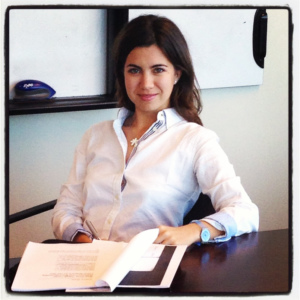News
Meet the Fellows: 2017 Women’s Studies Fellow Tatiana Rabinovich
 The Woodrow Wilson Dissertation Fellowship in Women’s Studies supports the final year of dissertation writing for Ph.D. candidates in the humanities and social sciences whose work addresses women’s and gendered issues in interdisciplinary and original ways. The 2017 class of Fellows includes University of Arizona, School of Middle Eastern and North African studies doctoral candidate Tatiana Rabinovich. In her dissertation, Laboring on the Margins: Muslim Women, Precarity, and Potentiality in Russia, she explores different forms of labor performed by pious Muslim women in Saint Petersburg, Russia. Below, Ms. Rabinovich discusses how her definition of labor has evolved and influenced her research:
The Woodrow Wilson Dissertation Fellowship in Women’s Studies supports the final year of dissertation writing for Ph.D. candidates in the humanities and social sciences whose work addresses women’s and gendered issues in interdisciplinary and original ways. The 2017 class of Fellows includes University of Arizona, School of Middle Eastern and North African studies doctoral candidate Tatiana Rabinovich. In her dissertation, Laboring on the Margins: Muslim Women, Precarity, and Potentiality in Russia, she explores different forms of labor performed by pious Muslim women in Saint Petersburg, Russia. Below, Ms. Rabinovich discusses how her definition of labor has evolved and influenced her research:
I grew up in a household of working women during the turbulent transition from the Soviet Union to the Russian Federation. I recall my grandmother often talking about whose labor mattered and deserved recognition and whose did not. These conversations in the kitchen over tea always provoked ambivalent feelings in me: I was wondering why some forms of labor were systematically devalued and considered insignificant, while others were rewarded and valorized. How do these historically situated discourses and knowledges about whose work counts intersect with the issues of gender, class, and race? As a Ph.D. student in the United States, I began to engage with feminist literature and came to view my female colleagues and myself as laborers in different capacities. My realization of the political dimensions of work became intertwined with my studies in gender and Islam, and took me back to my hometown of Saint Petersburg to the community of pious Muslim women, whom I had been following for years. As we were spending time together, I was observing their work as educators, volunteers, activists, entrepreneurs, and mothers that has sustained and nourished the community in different ways. Nevertheless, their labor remains largely unacknowledged and marginalized. The women called it “woodpecker work” or “laboring against all odds,” which eloquently captures its complexities and promises. My interlocutors taught me a great deal about value, perseverance and the meanings of social good, and alerted me to global struggles around these notions, for which I am grateful.

